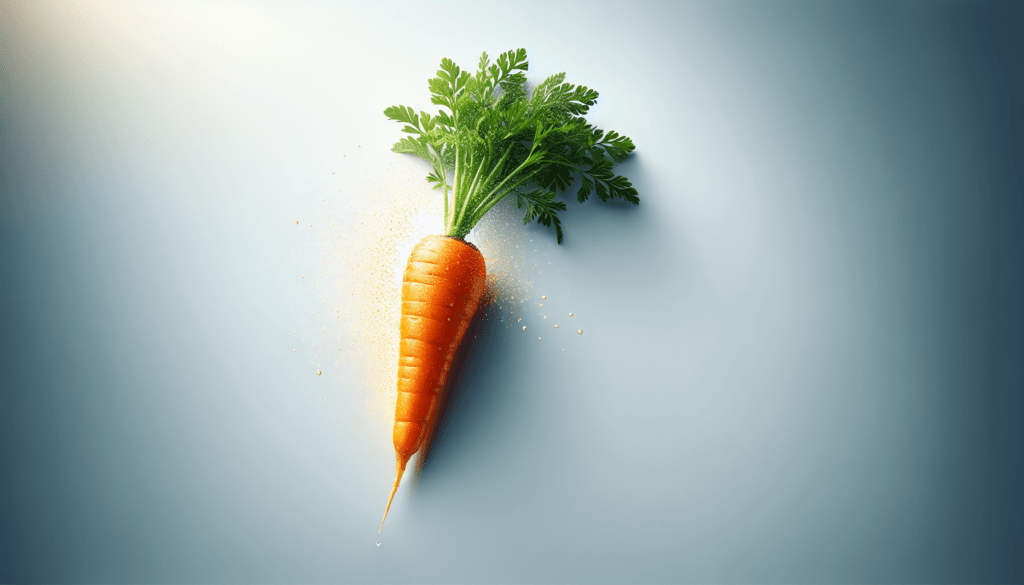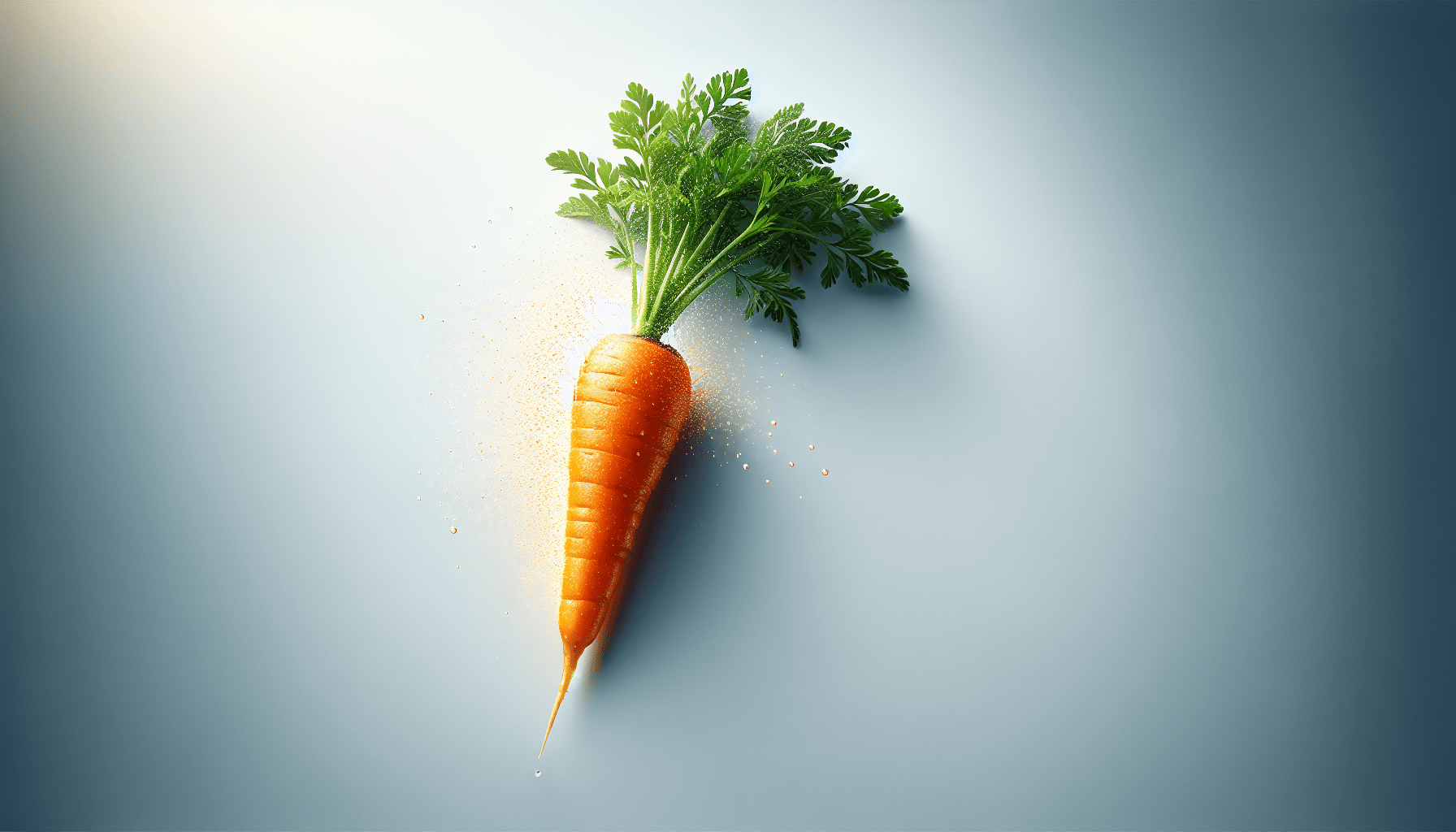Have you ever found yourself standing in the kitchen, prepping for a healthy juice, and wondered about the necessity of peeling your carrots before tossing them into the juicer? It’s one of those simple curiosities that might have crossed your mind, especially if you’re aiming to save time or perhaps preserve every ounce of nutrition. Let’s explore this very question and uncover if peeling carrots really makes a difference in your juicing routine.

Buy The Best Juicing Equipment
Understanding the Anatomy of a Carrot
Before jumping into the details of whether to peel or not, it’s essential to get to know the carrot a bit better. Carrots are root vegetables that grow underground, and like many roots, they gather nutrients and energy to help the plant grow. They’re quite popular because of their crunchy texture, vibrant orange color, and sweet flavor. But there’s more to the humble carrot than meets the eye.
Carrot Skin: To Peel or Not to Peel?
The skin of a carrot is where you’ll find a significant amount of its nutrients and fiber. Like many fruits and vegetables, the outer layer tends to contain antioxidants and minerals that contribute to a well-rounded diet. Yet, there’s often a concern about contaminants like dirt or residual pesticides lingering on the skin, which leads some to opt for peeling.
Nutritional Content of Carrot Skin
Carrot skins are surprisingly rich in nutritional content. Here’s a glance at what they have to offer:
| Nutrient | Benefit |
|---|---|
| Fiber | Aids in digestion and can help you feel fuller longer. |
| Antioxidants | Help protect your body from free radicals and boost overall health. |
| Vitamins | Especially Vitamin A, which is crucial for eye health and immune function. |
| Minerals | Essential for various body functions, including bone health and metabolism. |
So, if you’re looking to maximize the nutritional benefits of your juice, incorporating the skin might be the way to go.
Health Considerations
Juicing carrots with their skins intact might retain more dietary fiber and nutrients, but there are additional factors to weigh up. If you often purchase conventionally grown carrots, beware that the skins might contain pesticide residues. Although washing your carrots thoroughly can reduce this risk, peeling might seem like the more effective method for some individuals.
Organic vs. Conventional Carrots
Choosing between organic and conventional carrots could influence your decision to peel or not. Organic carrots are grown without the use of synthetic pesticides or fertilizers, making their skins generally safer and more appealing for consumption.
Differences Between Organic and Conventional Carrots
| Aspect | Organic Carrots | Conventional Carrots |
|---|---|---|
| Pesticide Use | Grown without synthetic pesticides | Might have pesticide residues on the skin |
| Taste & Texture | Often considered sweeter and richer in flavor | Flavor can vary; less consistent |
| Cost | Typically more expensive | Usually less expensive |
For those conscious about chemical exposure or environmental impact, organic carrots might be a worthwhile choice if you plan to juice with the skins on.
Allergies and Sensitivities
Some individuals might have sensitivities not only to pesticides but also to the natural components found within carrot skins. For these people, peeling carrots might prevent discomfort or allergic reactions, allowing them to enjoy their carrot juice without worry.

Flavor and Aesthetics
Another aspect to contemplate is the difference in taste and appearance of your juice when made with peeled versus unpeeled carrots. The skin can sometimes impart a slightly bitter or earthy flavor to your juice, which might be pleasant to some but less so to others.
Taste Considerations
Carrot skins contain natural oils and compounds that contribute to a distinctive earthy taste. If your palate leans more towards the sweeter side, peeling might be preferable to achieve a more traditional, sweeter carrot juice flavor.
Juice Appearance
Aesthetic appeal might also factor into your juicing routine. Unpeeled carrots can give your juice a richer, deeper color with tiny flecks, creating a more rustic and homemade appearance. On the other hand, peeled carrots provide a certain degree of clarity and brightness to the final product, which can be visually pleasing.

Convenience and Time
Let’s be honest—peeling carrots can be an extra step that takes time and effort, especially if you’re juicing regularly. For those on a tight schedule, the added convenience of juicing with the skin on can be immensely appealing. It saves time and reduces waste, making the juicing process smoother and more efficient.
Preparing Carrots Efficiently
If you’re leaning towards leaving the skins on, ensure you still engage in proper preparation:
- Wash Thoroughly: Use a vegetable brush and water to scrub the carrots clean, removing all visible dirt and residue.
- Trim Ends: Cut off the tops and tips to eliminate areas where dirt might be stubbornly attached.
- Examine for Defects: Check for any spots that might be damaged or heavily blemished and consider scraping or peeling those sections.
Juicing Time-Saving Tips
- Batch Prep: Clean and store your carrots ahead of time, so they’re ready whenever you decide to make juice.
- Use a High-Quality Juicer: Select a machine that efficiently processes whole carrots, skin included, to help maintain pace and consistency in your routine.

Environmental Considerations
Choosing not to peel carrots contributes to less food waste. Every small step toward reducing waste is a positive action in helping the environment. The skins, when juiced, often result in more pulp, which can be composted rather than discarded.
Sustainability and Waste Reduction
By juicing carrots with their skins, you also reduce packaging waste, as less peeling means fewer peel waste products to dispose of. Composting that extra pulp can also nourish your garden, completing a sustainable loop of consumption and growth.
The Composting Advantage
Here’s a quick overview of how composting carrot skins benefits the environment:
| Composting Benefit | Description |
|---|---|
| Soil Enrichment | Decomposed carrot skins can enhance soil fertility and structure. |
| Waste Reduction | Decreases landfill waste by diverting organic matter. |
| Ecosystem Support | Provides a natural fertilizer alternative, which can reduce chemical use. |

Conclusion: To Peel or Not to Peel?
Ultimately, whether you decide to peel your carrots before juicing is a personal choice that hinges on various factors—nutritional priorities, flavor preferences, time constraints, and environmental consciousness. There’s no definitive right or wrong answer; it all boils down to what aligns best with your lifestyle and values.
If you’re inclined to enjoy the fullest nutritional benefits, along with saving a bit of time and contributing to sustainability, perhaps try juicing with the skins intact. For those who prioritize a sweeter taste or have concerns about contaminants, peeling might be your best bet.
Experiment a little, and see what suits your taste and conscience. After all, juicing is an enjoyable and healthy way to introduce more fruits and veggies into your daily diet, and the process should bring joy and wellness to your kitchen adventures.
